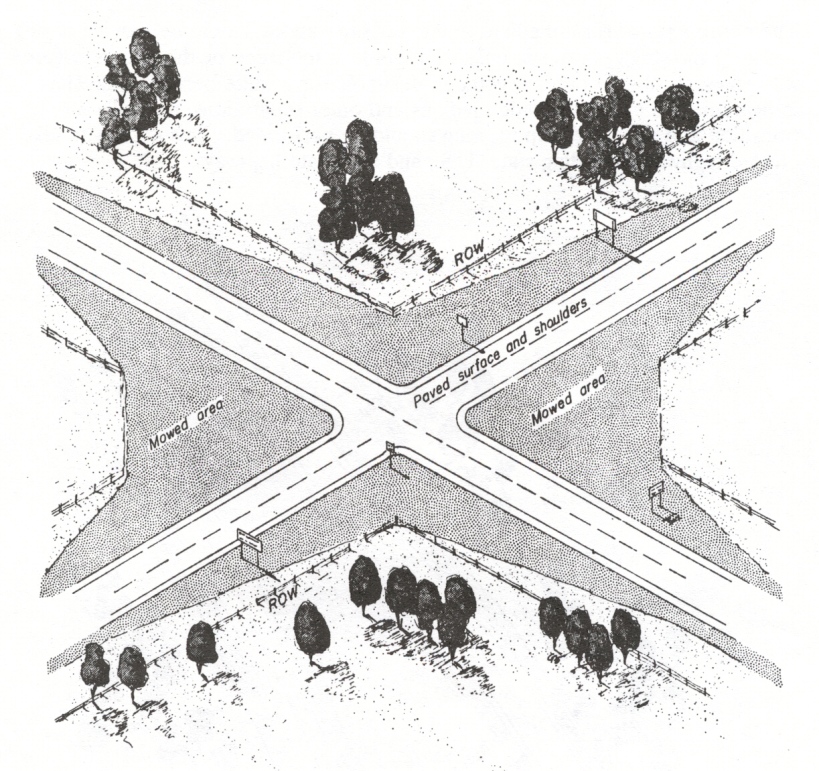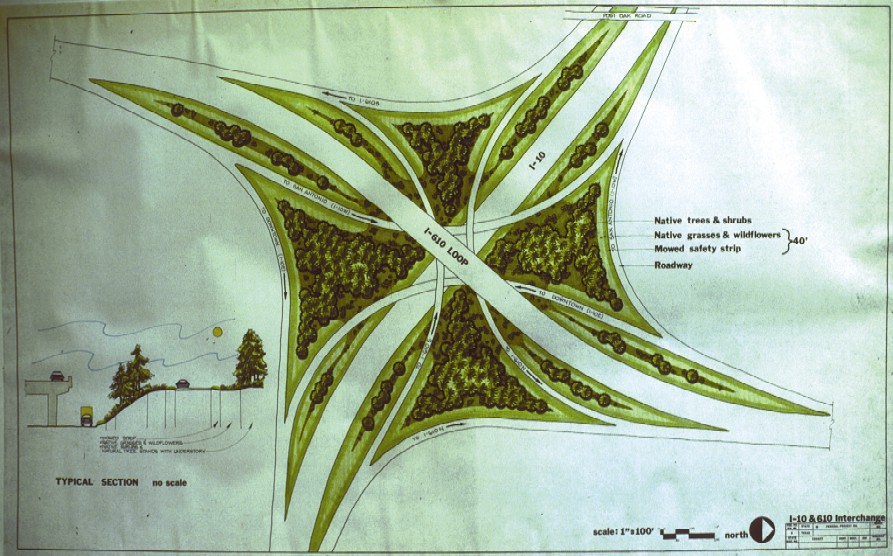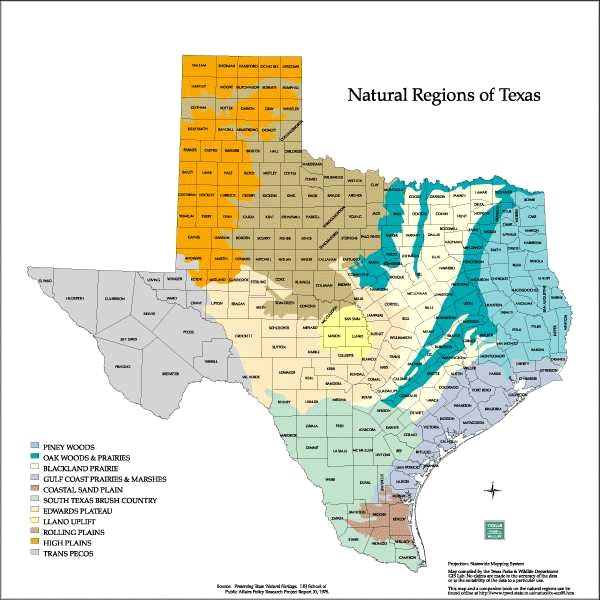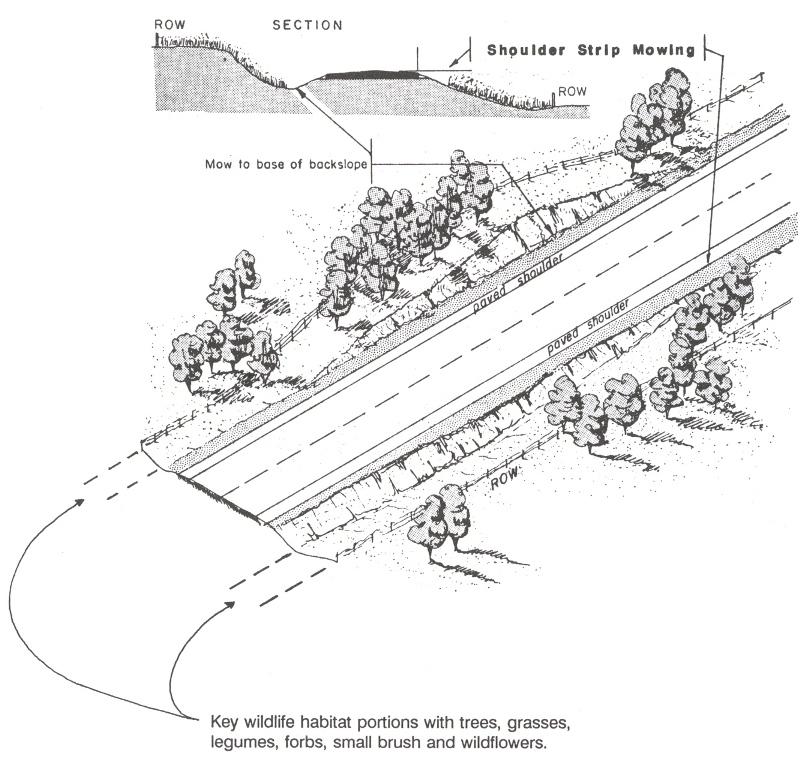Section 3: Special Mowing Situations
Anchor: #i1002702Rural Medians and Outer Separations
Rural medians and outer separations should be limited to a maximum of 30 foot widths mowed during spot and strip mowing operations, unless the grade is too steep or the area is covered with trees, shrubs or other vegetation desirable for wildlife benefit, aesthetic benefit, pollinator benefit or erosion mitigation. On extremely wide medians and outer separations, normally only transition and shoulder strip mowing should be performed. This applies to all divided highways including state, U.S. and interstate highways.
Figure 2-9. Rural Medians.
Anchor: #i1002726Rural Intersections
During spot and strip mowing operations, the area around rural intersections or interchanges will be mowed as necessary to provide adequate sight distances.
Figure 2-10. Rural Intersections.
Anchor: #i1002750Urban Intersections
Urban intersections can sometimes be sparsely landscaped or they can be formally landscaped with turf grass, tree and shrub beds, which can be irrigated or non-irrigated. Often, as in Figure 2-11, the interior areas of these intersections include natural, brush, wildflower, pollinator or wooded areas. Because Texas is a diverse state with 11 vegetative regions (see Figure 2-12, below) intersections are landscaped differently within the districts and maintained with various maintenance levels.
Figure 2-11. Urban Intersection, Houston District.
Figure 2-12. The 11 natural vegetative regions of Texas.
Anchor: #i1002783Cut and Fill Sections
Normally, on fill sections, only strip mowing will be necessary. Strip mowing will also be adequate in cut sections; however, at deep cuts, mowing must extend across the ditch line to the beginning or base of the backslope.
Figure 2-13. Cut and Fill Sections.
Anchor: #i1002802Rest Areas and Picnic Areas
Rest areas and picnic areas should be maintained in a lawn-type condition with frequent mowing.




